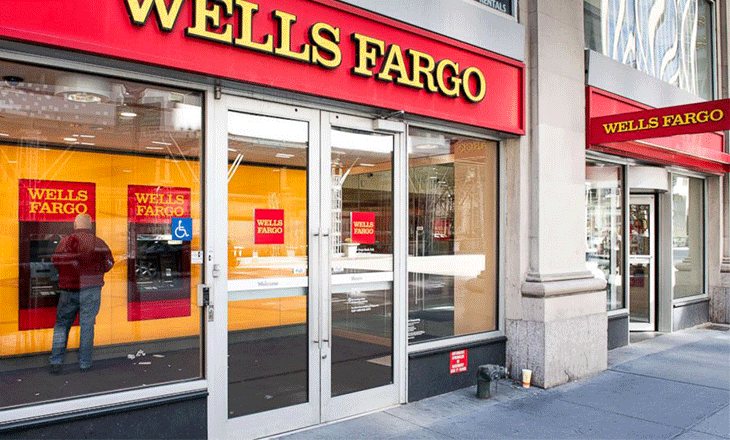Poor Wells Fargo (NYSE:WFC). The third largest bank in the United States cannot seem to win for losing. On one day, it announces a major internal cryptocurrency and blockchain technology project, much in the same vein as did JPMorgan Chase months back, but on the next day, the crypto community, not short on memory, quickly chastised the bank for such an obvious display of hypocrisy, again much in the same vein as JPMorgan Chase.
Wells Fargo has never been a public supporter of all things crypto. They have generally been quiet on the issue, since slamming anything that appears to be emanating from the Fintech industry would be, at least for a California bank in close proximity to Silicon Valley, like shooting oneself in the foot. On the other hand, Jamie Dimon, the outspoken CEO and Chairman of JPMorgan, had gotten away with saying anything that he wanted, like saying Bitcoin was a Ponzi scheme, since his major domicile is New York and Wall Street. Dimon has since recanted, after the “JPMCoin” was announced.
Just the other day, WFB’s press release read:
Wells Fargo & Company (NYSE: WFC) today announced plans to pilot an internal settlement service, Wells Fargo Digital Cash, which will run on Wells Fargo’s first distributed ledger technology (DLT) platform. Wells Fargo Digital Cash will allow Wells Fargo to complete internal book transfers of cross-border payments within its global network using digitized cash – and for those international locations to exchange that digitized cash among themselves.
Lisa Frazier, Wells Fargo’s head of the Innovation Group and comparable to a similar chap at JPMorgan, went through the same motions as her counterpart, suggesting that there were several promising opportunities within the bank that could benefit from distributed ledger technology. Cross-border payments were a given, but WFB was also interested in and had already explored possibilities in trade finance and other related banking activities “to remove barriers to real-time financial interactions across multiple accounts in multiple marketplaces around the world.”
So what is the problem? Everything sounds copasetic, doesn’t it? Why has Wells Fargo been cast into the penalty box? Social media channels have long memories these days. Some months back, a Wells customer tweeted that he had tried to buy Bitcoin on the Coinbase exchange with his WFB banking card, but was denied. His query to WFB customer service, according to NewsBTC, was answered on Twitter with the following response:
Thanks for reaching out to us. Unfortunately, Wells Fargo does not allow transactions involving cryptocurrency. –Josh.
The Twitter and Reddit communities quickly lit up, after Wells announced its pilot digital cash internal settlement service. Social media followers noted the apparent hypocrisy of forbidding crypto with the left hand, while saluting it with the right hand. Banks are very large institutions, which cannot always perfectly coordinate their actions, making it quite easy to poke fun at the California-based global banking giant.
One representative tweet that made the rounds was from none other than Anthony Pompliano, co-founder of Morgan Creek Digital and avid Bitcoin advocate. He had his fun by including Warren Buffett in his missive. Buffet has never been a fan of Bitcoins or other altcoins either, claiming they just sit there, doing nothing. The “Pomp” tweeted:
Warren Buffett owns almost 10% of Wells Fargo. Wells Fargo is creating a dollar-backed digital currency. So now Warren Buffett basically loves Bitcoin, right?
The truth is that no substantial bank or large corporation, especially those on public stock exchanges, should ever be caught dead by not researching the latest and greatest innovative technologies that come down the pipe. Can you imagine any company trying to ignore the Internet and then explaining to its stockholders that it did not think the web had any promise? The executive team would have been fired. Yes, there may be a “stigma” regarding cryptos that irritates bankers, but over time, they will come around.
